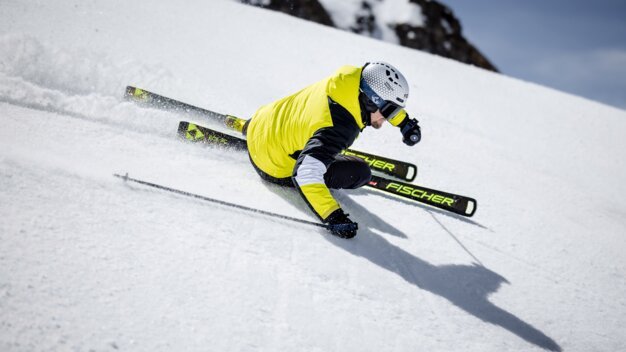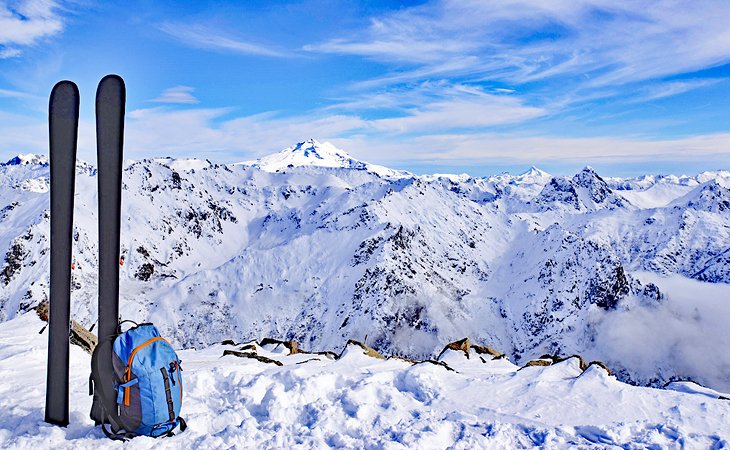
Biathlon is a sport that combines cross-country skiing and rifle marksmanship. Biathlon sees an athlete run a course of 15 km, and then shoot targets from a target range. The aim is five targets. Missing targets can result in a penalty. A penalty loop of 150 meters must be completed by the athlete.
In order to win a biathlon event, the athlete must complete a certain number of laps or targets. This is a test in speed, technique, and skill. Biathlon has been around since the beginning of time but was only introduced into the Olympics in 1960. In the early 20th century, however, it was popular among Scandinavian units. Biathletes were used to hunt game using spears by the Swedish and Norwegian military in the 1700s. Most local clubs today have athletes. They train to compete at the Provincial Calforex Cups.
Most biathletes wear skin-tight Lycra racing suits, which decrease wind resistance. They also use shorter skis than traditional skiers. The disc at the bottom of the ski poles prevents athletes from spearing into the snow.

Biathlon is mentally and physically demanding. Each event has its own rules. For example, a sprint biathlete must shoot at five targets in a standing position. However, biathletes who are prone may only have their cheeks and hands in direct contact with the rifle.
Relay races can be entered by biathletes. If the biathlete finishes the event in the top ten, she can earn a medal. Ole Einar Bjoerndalen won the four events at the 2002 Winter Olympics held in Salt Lake City. He anchored the Norwegian team in a relay and took home a gold. His name has been given the title of "King in Biathlon" as he has won 45 medals from the Biathlon world championships.
Biathlon is a very popular Olympic sport. It is a popular Olympic sport that draws millions of TV viewers. While many Americans have never won a biathlon medal, many from other countries have. In 1992, women's biathlon became an Olympic event. Women have won more than 100 bronze, silver, and gold medals since 1992.
The sport has a long history, dating back over four thousand years. The Swedish and Norwegian military hosted some of the earliest competitions. The International Biathlon Federation (IBU) is responsible for the regulation of the sport. The sport gained its own international governing body after the IBU split with UIPMB.

The sport has evolved since its beginnings in the early twentieth century. Originally, hunters traveled on skis in pursuit of game. Hunting techniques evolved into a sport of skill. Later, survival skills were integrated in the military. Biathlon was dropped after the First World War. It has been revived in recent times.
Biathletes at the top of their game train hard and dedicate significant time to mental and physical preparation. Biathletes tend to be members of local clubs. They can reach their coaches and learn more about training sessions.
FAQ
What can I take with me in my suitcase?
You should always own at least two pairs. One pair for walking around the city and another pair for going on vacation.
Make sure you have enough clothes to cover both. If you are traveling by plane, you need to make sure you have an extra shirt, pants, underwear, and socks.
You might consider bringing along some clothing if you plan to stay longer. This will make it easier to go shopping for new outfits and won't make you feel uncomfortable.
If you're taking a bus or train, you'll need to bring some comfortable shoes. And if you're driving, you'll need to ensure you've got a spare set of tires.
You'll also need to pack plenty of toiletries such as soap, shampoo, toothpaste, deodorant, and moisturizer.
And last but not least, you'll need to take a flashlight, insect repellent, sunscreen, sunglasses, a hat, and a first aid kit.
It's better to keep all your items in one bag than to try to fit them in different bags. You'll save both time and space.
Last but not least, make sure to bring a small towel & washcloth. They will be very useful after a long day of sightseeing.
What snacks should I bring to the plane?
There are many different types of snacks available for you to choose from when flying. You might consider bringing along any food items you enjoy while traveling.
For example, if you love chocolate, you might want to pack some chocolates and other treats such as biscuits, crisps, and nuts.
For something more savory, you might want to pack cheese or crackers.
Consider what type of drink you want to take on board. You might prefer something hot or cold.
Whatever type of snack or drink you decide to bring along, make sure they are all packed safely and securely.
It will be easy to transport them without worrying about them being damaged.
What should you pack for a vacation?
It's important to decide what you want for your holiday. It's not just about packing clothes. Also, think about where and how long your stay there.
Think about the activities that you are interested in. For instance, if you travel to exotic places, you may consider diving. You may also be interested in participating in local festivals and events, especially if your stay is longer.
To ensure that your health is taken care of, it is essential to inform those who will be taking care of you about any issues.
Statistics
- Alcoholic beverages with 24% alcohol or less are not subject to limitations in checked bags. (tsa.gov)
- Pack sweaters, jackets, and underwear in reusable compression bags creating up to 75% more space in your luggage. (wikihow.com)
- You can use compression sacs or cubes to reduce the volume of your clothes by up to 80%—this is especially convenient for bulky items such as sweaters and jackets. (eaglecreek.com)
- That's an 18% jump from 2019, the previous record year. (travelandleisure.com)
- Alcoholic beverages with more than 24% but not more than 70% alcohol are limited in checked bags to 5 liters (1.3 gallons) per passenger and must be in unopened retail packaging. (tsa.gov)
External Links
How To
What are the best travel tips for beginners?
You can travel is an exciting adventure, but there's a lot you need to be aware of to make sure you have a safe and enjoyable journey.
These are some basics to help you plan your next trip.
-
Book early. The price of a booking is lower if it's made in advance. Avoid last-minute offers by airlines and hotels to save money.
-
Stay-at-budget accommodations. Hotels at a lower price offer more value. They're usually located near public transportation and shopping centers.
-
Don't overpack. Be light. Allow for souvenirs, gifts, and luggage. Bring clothes that fit well and won't wrinkle easily.
-
Use common sense. If you're traveling alone, don't walk around late at night. Avoid unsavory neighborhoods and areas where crime is rampant.
-
Protect your valuables from theft. Keep valuables hidden from view. Never leave anything valuable unattended when you go swimming.
-
Take extra care when handling cash. Tourists in foreign countries are often the targets of thieves. Keep your money safe and use ATMs only in banks or secured locations.
-
Be familiar with your surroundings. Make sure you are familiar with public transportation before booking a hotel. Find out about tourist attractions, restaurants, and other sights.
-
Learn about safety. Learn about local laws, customs, and culture before you arrive.
-
Have fun. Enjoy yourself, no matter what happens. It's worthwhile.